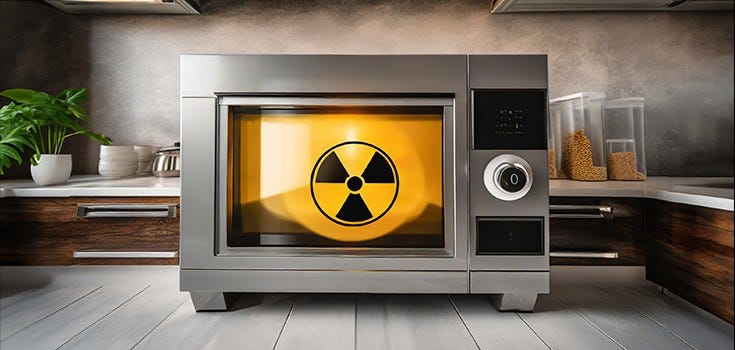Microwaves have become a ubiquitous appliance in modern kitchens, offering convenience and speed in heating up food. However, beneath their seemingly innocuous exterior lies a range of potential health hazards that warrant serious consideration. From radiation exposure to chemical changes in food, here are some compelling reasons to reconsider the presence of microwaves in our homes and our daily routines.
Radiation Exposure with Every Use
Every time we press the start button on a microwave, we expose ourselves to radiation. While microwaves themselves are non-ionizing radiation, meaning they don't have enough energy to remove electrons from atoms or molecules, they can still penetrate the body and cause harm. Studies have linked microwave radiation exposure to a variety of health issues, including sleep disorders, memory impairment, changes in heart rate, and damage to cells throughout the body.
Chemical Contamination of Food
Beyond radiation concerns, microwaving food in plastic containers poses a significant risk of chemical contamination. When plastic is heated in the microwave, it can release harmful chemicals such as carcinogens into the food. Pre-made microwavable meals often contain plastic packaging that leaches toxins like BPAs (Bisphenol A) into the food, further exacerbating health risks.
Nutrient Loss and Chemical Changes in Food
Microwaving doesn't just heat food; it also alters its chemical composition and depletes its nutritional value. Research has shown that microwaves strip nutrients from food, leaving it less nourishing than alternatives like stovetop or oven heating. For example, a study conducted in Spain found that microwaved broccoli lost over 97% of its antioxidants, compared to less than 11% lost when steamed.
Activation of Voltage Gated Calcium Channels (VGCCs)
Microwaves can activate voltage-gated calcium channels (VGCCs) in the body, leading to the production of free radicals and causing damage to DNA. This process can also result in mitochondrial dysfunction, which is implicated in the development of numerous chronic illnesses. The cumulative effect of frequent microwave use on cellular health cannot be overstated.
Safer Alternatives
Fortunately, there are safer alternatives to microwaving food. Reheating leftovers on the stovetop or in the oven preserves nutrients and avoids the risks associated with microwave radiation. Additionally, preparing homemade meals and freezing them for later use eliminates the need for pre-made microwavable foods, reducing exposure to harmful chemicals.
Using a thermos to keep food and beverages hot is another effective way to avoid reheating in the microwave. By adopting these alternatives, we can prioritize our health and well-being while minimizing our exposure to the potential dangers of microwave radiation and chemical contamination.
Choose Health Over Convenience
While microwaves offer convenience, their potential health risks should not be overlooked. From radiation exposure to chemical contamination and nutrient loss, the evidence against their use continues to mount. By making informed choices and exploring safer alternatives, we can reduce our reliance on microwaves and prioritize our long-term health and vitality.





